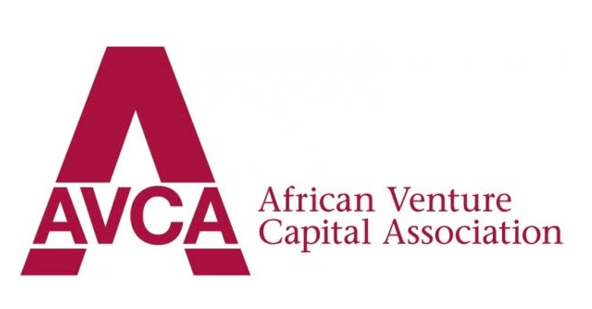African Private Capital Association (AVCA) releases Venture Capital in Africa report
The 2022 Venture Capital in Africa Report was just made public by the African Private Capital Association (AVCA). The anticipated research, which analyzes venture capital (VC) performance in Africa by transaction volume, value, and investment stage, shows the sector’s adaptability to the current state of the world economy.
Private capital inflows are continuing to drive economic growth and inclusion throughout the continent after a year of active VC activity. The new report offers crucial insights into the sub-regions, nations, and industries that have solidified Africa’s rising position as a region for VC activity globally and the growing significance of early-stage investment on the continent. It is a thorough overview of Africa’s innovation ecosystem.
The Covid epidemic and the ensuing capital infusion prompted central banks to adopt looser monetary policy in response. In an effort to combat widespread economic and geopolitical instability and high inflation, interest rates increased throughout the year. The world of venture capital was shaken by the aforementioned, which saw a 32% decrease from the US$681 million invested in 2021.
The traditionally major driver of venture capital activity, the tech sector, has slowed down, which has led to a more general downturn. The two major tech investment markets are North America and Asia, which drew the most cash but also accounted for 73% of the financing gap in the worldwide venture capital business. Latin America, the region closest to Africa in terms of socioeconomic comparison, saw funding cut by more than half.
Even though capital was being deployed more cautiously around the world, Africa continued to see large financial commitments. Comparatively, Asia (the only other region to see positive year-over-year growth in transaction volume) had its deal volume increase by only 7%, compared to Africa’s 21% gain. Looking at the continent more generally, Africa’s 1% decrease in deal value from the prior year shows how the region was mostly unscathed by the heightened risk-off investor sentiment witnessed in other markets around the world, which led to contractions in start-up investment.
853 deals totaling US$6.5 billion in venture loans and US$6.5 billion in total venture investment were completed in Africa. An industry high for deal volume was achieved in Africa last year, indicating a nearly 10-year trend of growth and a 31% compound annual growth rate (CAGR) from 2014 to 2022. The growing involvement of start-ups seeking finance for the first time, which accounts for 37% of deal activity, has contributed to this surge.
A decline in large-scale investments is consistent with the global trend of fewer late-stage agreements caused by difficult macroeconomic circumstances. The majority of venture capital funding, however, went to younger African businesses, a sign of the continent’s rapid levels of ambition, entrepreneurship, and pioneering innovation.
Venture capital rewarded innovation, as seed-stage funding accounted for the majority of VC deal activity on the continent and also showed the biggest year-over-year growth. Between 2021 and 2022, the number of early-stage (Series A and B) investment deals increased by 25%, pushing the median deal value to US$10 million, the highest value globally, exceeding North America and Asia and narrowing the gap with Europe. This growth pattern reflects Africa’s rapid development. According to the AVCA’s analysis, nearly three-quarters of Africa’s funding comes from foreign investors, who are mostly made up of fund managers and investment companies from abroad.
The continued investment in firms was equally positive, emphasizing investors’ dedication to businesses over the long term and their continued expansion. According to the research, 409 different companies obtained further venture capital after receiving investments in prior years, while 8% of early-stage investments in companies were made in the same company more than once in 2022. Continued investments support the viability of these businesses, the jobs they create, and the growing effect they have through igniting more resilient economic and social ecosystems.
The early-stage investment and 15 super-sized deals totaling US$100 million or more show the maturation of the African VC market. Another sign of this transformation is the preservation of value amid reduced global VC activity, which supports a healthy investment climate across the continent. This has also given people the motivation to overcome obstacles. Even while there is still space for improvement, more than a quarter of start-ups that got venture capital funding were either created by women or had at least one female founder.
Deal volume and value are dominated by North, West, and East Africa.
West Africa once more recorded the greatest number of agreements on the continent with 235, followed by North Africa (178) and East Africa (168) in terms of the 786 VC deals. North Africa dominated deal values on the continent with US$1.1 billion, followed by East Africa with US$899 million and West Africa with US$843 million. With a combined 64% of transaction volume and 51% of deal value, the booming economies of Nigeria, Egypt, South Africa, and Kenya remain the most alluring destinations for venture capital investment.
The CAGR of 57% in investment volume and 120% in investment value between 2017 and 2022 clearly illustrates North Africa’s importance in the venture ecosystem. Morocco and Tunisia’s economy, which were led by Egypt, fueled more growth. The information technology, consumer discretionary, and industrials industries accounted for the majority of the 170 deals across the three countries, with a reported value of US$798.5 million.
Furthermore, the US$1.84 billion in inflows made to start-ups with a multi-regional geographic footprint serve as evidence of the sustained interest in making investments across numerous sub-regions. With only 10% of deal volume but a considerable 35% of deal value, it is clear that larger investments and more organizations’ capacity for regional expansion are important factors.
Sector focus continues as normal
The three most active industries by volume in 2022 were financials (31%), information technology (15%), and consumer discretionary (15%), emphasizing the current growth areas. The dominance is a result of increasing connectivity, changing consumer preferences, and a changing demography in Africa. New products and retailers are reaching new populations, particularly a youthful, technologically literate, urban workforce, thanks to technology-enabled services.
The 300 million-person African market opportunity for digital banking encapsulates the financials sector’s dominance. This industry, which is expected to be worth US$2.2 billion in 2022, is also being stimulated by more customized solutions and increased accessibility. The $819 million industry of industrials is driven by commercial and professional services such software that enhances human resource management as well as mobility technologies. Investment in these sectors demonstrates Africa’s standing as an area of interest, innovation, and top-notch service delivery.
Similar trends may be seen in venture debt sector focus, with financials (30%), utilities (28%), and industrials (15%) accounting for the bulk of activity. Four super-sized venture debt deals totaling more than US$100 million were also made, compared to 11 super-sized venture capital deals.
“Resistance against rippling effects of Covid-19 and global economic headwinds is a reminder of the high-quality investment opportunities on the continent,” said Abi Mustapha-Maduakor, Chief Executive Officer of AVCA. Despite less impact investment last year, as seen globally, the impact is still being made in Africa thanks to a more connected market that supports tech-enabled solutions in everything from healthcare to education. As a developing VC market continues to foster longevity and opportunity for African companies and communities to define the future, intuitive entrepreneurs and effective capital allocation are changing lives.




